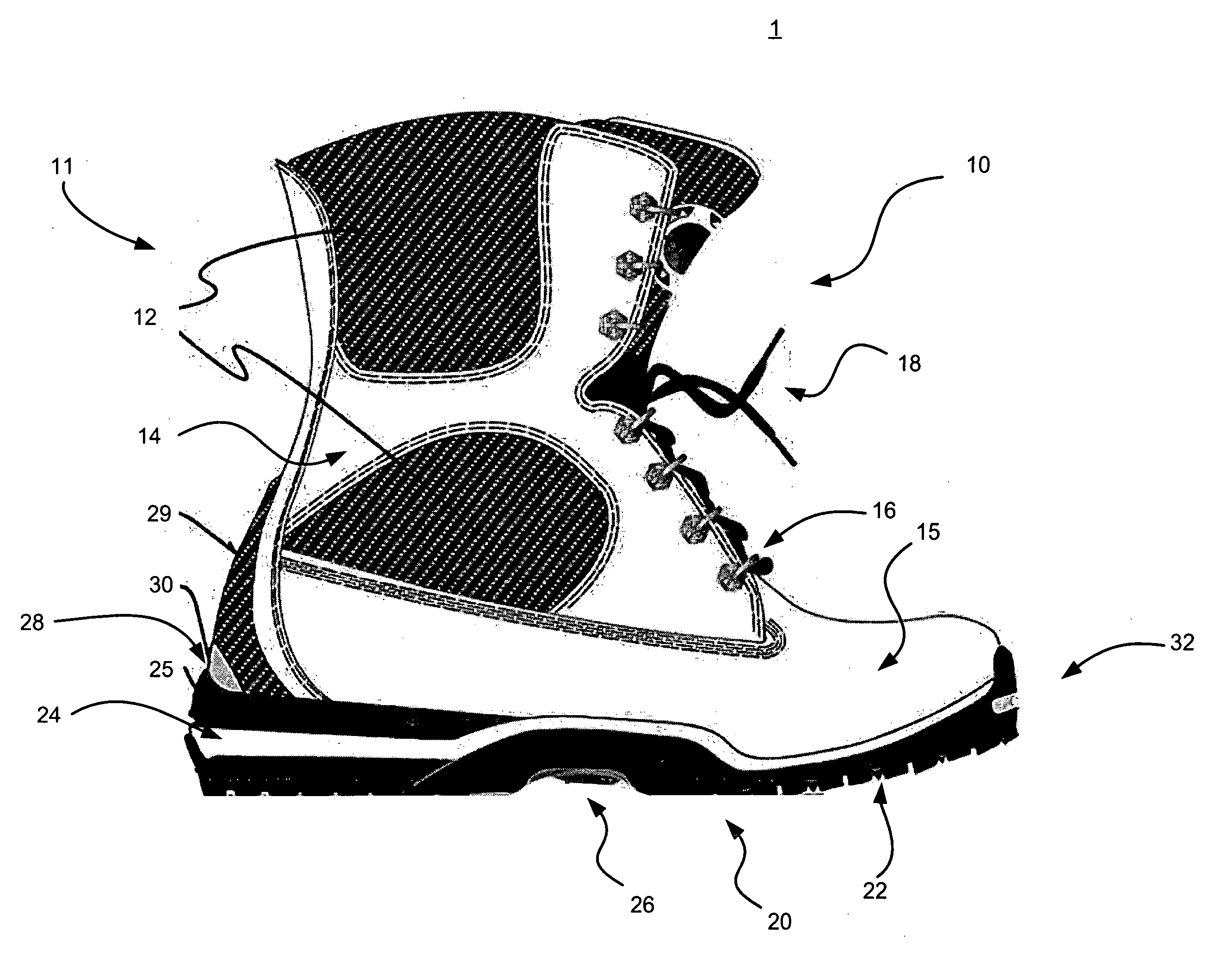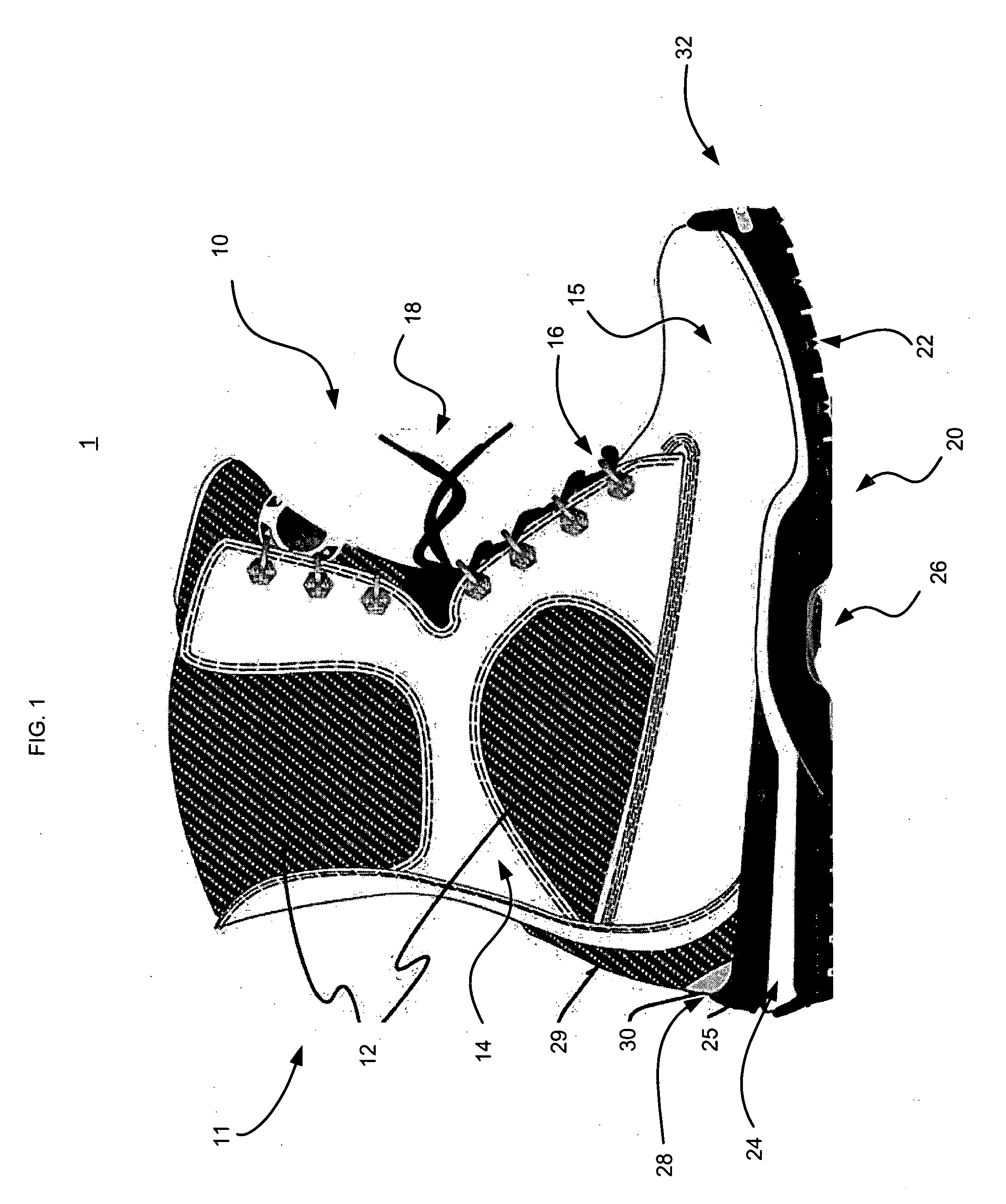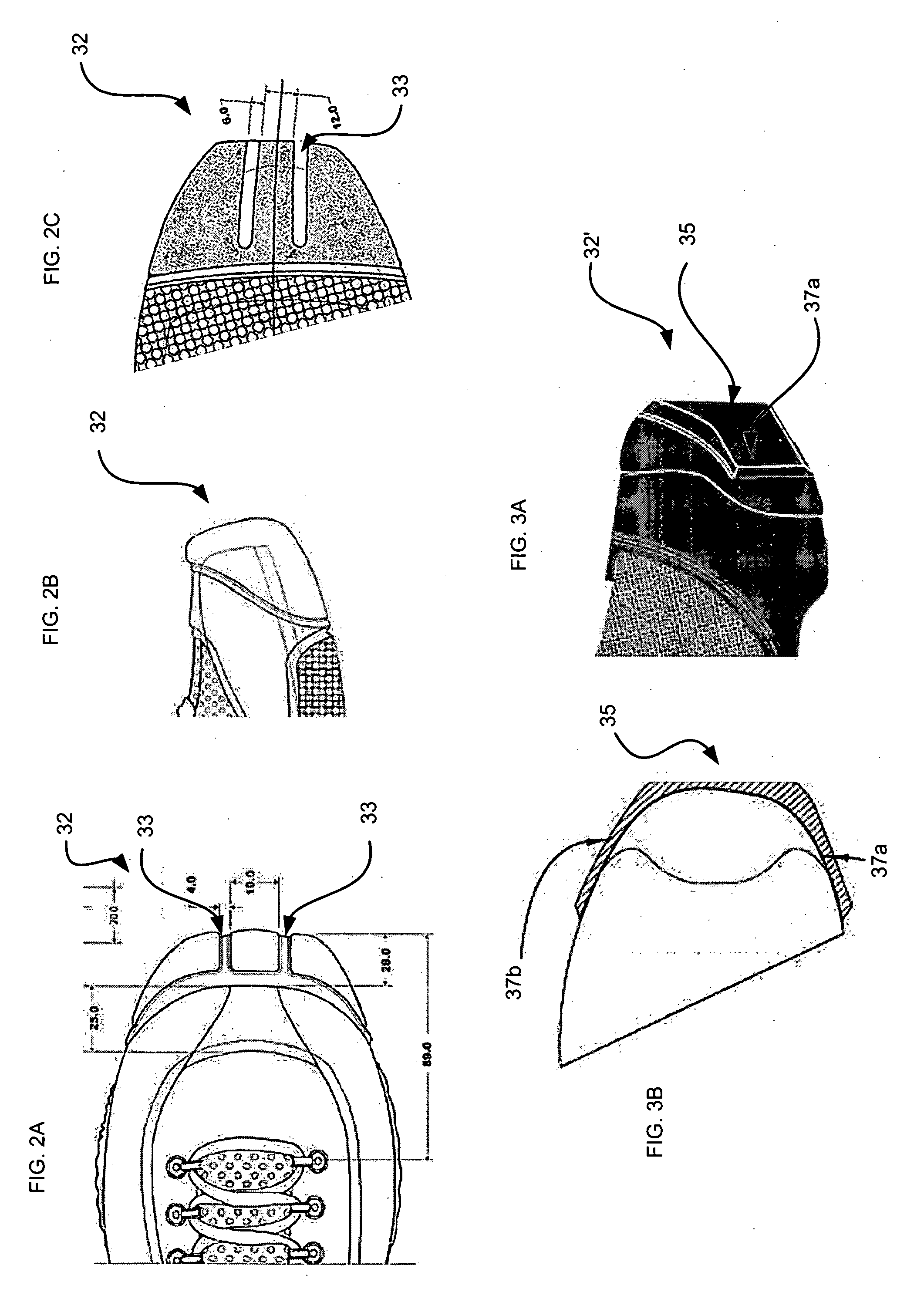High performance boot
a high-performance, boot technology, applied in the direction of bootlegs, uppers, fastenings, etc., can solve the problems of wearer's feet the wearer's foot being hot and uncomfortable, and the wearer's work boots offering little protection against hazards
- Summary
- Abstract
- Description
- Claims
- Application Information
AI Technical Summary
Benefits of technology
Problems solved by technology
Method used
Image
Examples
Embodiment Construction
[0032] A preferred embodiment of an article of footwear according to the present invention will now be described with reference to the figures.
[0033] A side view of an article of footwear 1, such as a boot, is shown in FIG. 1. While depicted as a boot such as a workboot, the article of footwear 1 may be configured as another type or style of boot or other form of footwear. As depicted, the boot 1 preferably has an upper 10 defining a cavity adapted to receive a wearer's foot. The upper is flexible, meaning the upper easily bends to allow the wearer's ankle to move freely while secured within the boot. The upper 10 may comprise one or more distinct regions and / or layers containing different material. For instance, one of the regions may be a breathable material, meaning that the material preferably includes holes or porous material such as a mesh to allow airflow between the cavity of the boot 1 containing the wearer's foot and the environment outside the boot 1. Another region or r...
PUM
| Property | Measurement | Unit |
|---|---|---|
| height | aaaaa | aaaaa |
| height | aaaaa | aaaaa |
| height | aaaaa | aaaaa |
Abstract
Description
Claims
Application Information
 Login to View More
Login to View More - R&D
- Intellectual Property
- Life Sciences
- Materials
- Tech Scout
- Unparalleled Data Quality
- Higher Quality Content
- 60% Fewer Hallucinations
Browse by: Latest US Patents, China's latest patents, Technical Efficacy Thesaurus, Application Domain, Technology Topic, Popular Technical Reports.
© 2025 PatSnap. All rights reserved.Legal|Privacy policy|Modern Slavery Act Transparency Statement|Sitemap|About US| Contact US: help@patsnap.com



